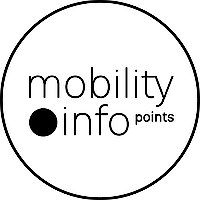Access to the European labour market – British culture professionals protected by the Withdrawal Agreement
British cultural workers who are protected by the Withdrawal Agreement because they have already lived in Germany or another EU state since before 31 December 2020, can continue to work without restrictions in their country of residence. However, this freedom only applies in the country of residence. If they want to work and/or offer services in another EU state, the same conditions apply to them as to non-EU nationals.
In the following, we provide an overview of the regulations that apply to business and private stays of British creative professionals protected by the Withdrawal Agreement.
Further informations can also be found in the Application Instructions for the Implementation of the Withdrawal Agreement United Kingdom - European Union (only available in German) and the FAQ for UK nationals and their family members about the right of residence provided for in the Withdrawal Agreement of the Federal Ministry of Interior and Community.
For private purposes, British nationals protected by the Withdrawal Agreement may visit other countries within the Schengen Area for a maximum of 90 days in any 180-day period.
Staying in the Schengen Area due to a paid activity
Whether British nationals protected by the Withdrawal Agreement need to apply for a visa or other residence permit to carry out paid work in a country other than their country of residence in the Schengen Area always depends on the national legislation of the destination country.
In principle, therefore, it is crucial for British nationals to familiarize themselves with the residency requirements of the country in which they intend to work or offer their services.
The following regulations apply to British nationals protected by the Withdrawal Agreement whose country of residence is not Germany but who wish to perform or offer services in Germany:
Stay in Germany due to paid activity
In Germany, access to the labour market for non-EU nationals is regulated by the Employment Ordinance (Beschäftigungsverordnung/BeschV).
This ordinance specifies which gainful activities require a Schengen visa and which may be performed without a visa. The Employment Ordinance applies to both self-employed persons and salaried employees.
Professional groups who do not need to apply for a separate residence permit to work in Germany include:
- Persons who engage in lectures or in performances of special academic or artistic value or in performances of a sporting nature – provided that the duration of the activity does not exceed 90 days within a 12-month period,
- persons employed in the context of festivals or music and cultural events or posted in the context of guest performances or foreign film and television productions, provided that the duration of the activity does not exceed 90 days within a 12-month period,
- persons performing in one-day shows or events for up to 15 days a year. These are performances that do not take place for more than two days in a row,
- photo models, advertising models, fashion models,
- interpreters who participate in meetings or negotiations in Germany – provided that the duration of the activity does not exceed 90 days within a 12-month period.
The complete list of professional groups can be found in Section 22 of the Employment Ordinance.
In accordance with these central regulations for visa-free stays in Germany, British artists who live in another EU country and are protected by the Withdrawal Agreement may enter Germany without applying for further residence permits if:
1. the requirements for a short stay in the Schengen area are met, i.e. if the duration of stay does not exceed 90 days within 180-day period and/or
2. the person is a member of one of the professional groups according to Section 22 BeschV, and the associated maximum duration of activity is not exceeded.
What regulations apply to British nationals who are protected by the Withdrawal Agreement and wish to work in another EU country?
The same regulations apply to British cultural workers living in Germany who are exempt from the Withdrawal Agreement and who wish to work in another EU country as to non-EU citizens. Accordingly, the regulations of the respective EU country must be taken into account for professional stays in the EU.
In order to ensure that all the necessary requirements of the destination country are met, it is advisable to consult with the local authorities.
A non-binding overview of the regulations of all EU countries can be found here, but please note that we are not responsible for the linked information and that you must always check the accuracy of this data on your own responsibility:
Other special cases excluded from the Withdrawal Agreement
Cross-border commuters
An exception are self-employed cross-border commuters. They are mainly characterized by the fact that they carry out their self-employed activity permanently and on a sustained basis in a country other than the one in which they reside.
British nationals must expect to describe and document their situation in detail in order to be recognized as self-employed cross-border commuters. The main evidence in this case is the regular and long-term activity in the other country, as well as regular stays in the business premises of the branch office in the other EU country. Self-employed British cross-border commuters can obtain information on the steps they should follow to establish their status from the immigration office responsible for their place of residence.
Van der Elst visa
The Van der Elst visa offers further relief – but only for employees or employers. Employers can apply for this visa in order to post their employees to a certain EU country to provide services there.
This regulation also applies to employed artists and cultural professionals who are posted to a country in the Schengen Area for a longer period of time as part of their permanent employment.
Activities in the Republic of Ireland (Common Travel Agreement)
The Common Travel Agreement is an agreement between the United Kingdom and the Republic of Ireland that allows British and Irish citizens to move between the two countries without passport checks or visa requirements. Professional activities are also covered by the CTA and can be carried out in the two countries without restrictions.
Arts Infopoint UK

Contact Arts Infopoint UK for questions related to visits to the United Kingdom
Webpage
